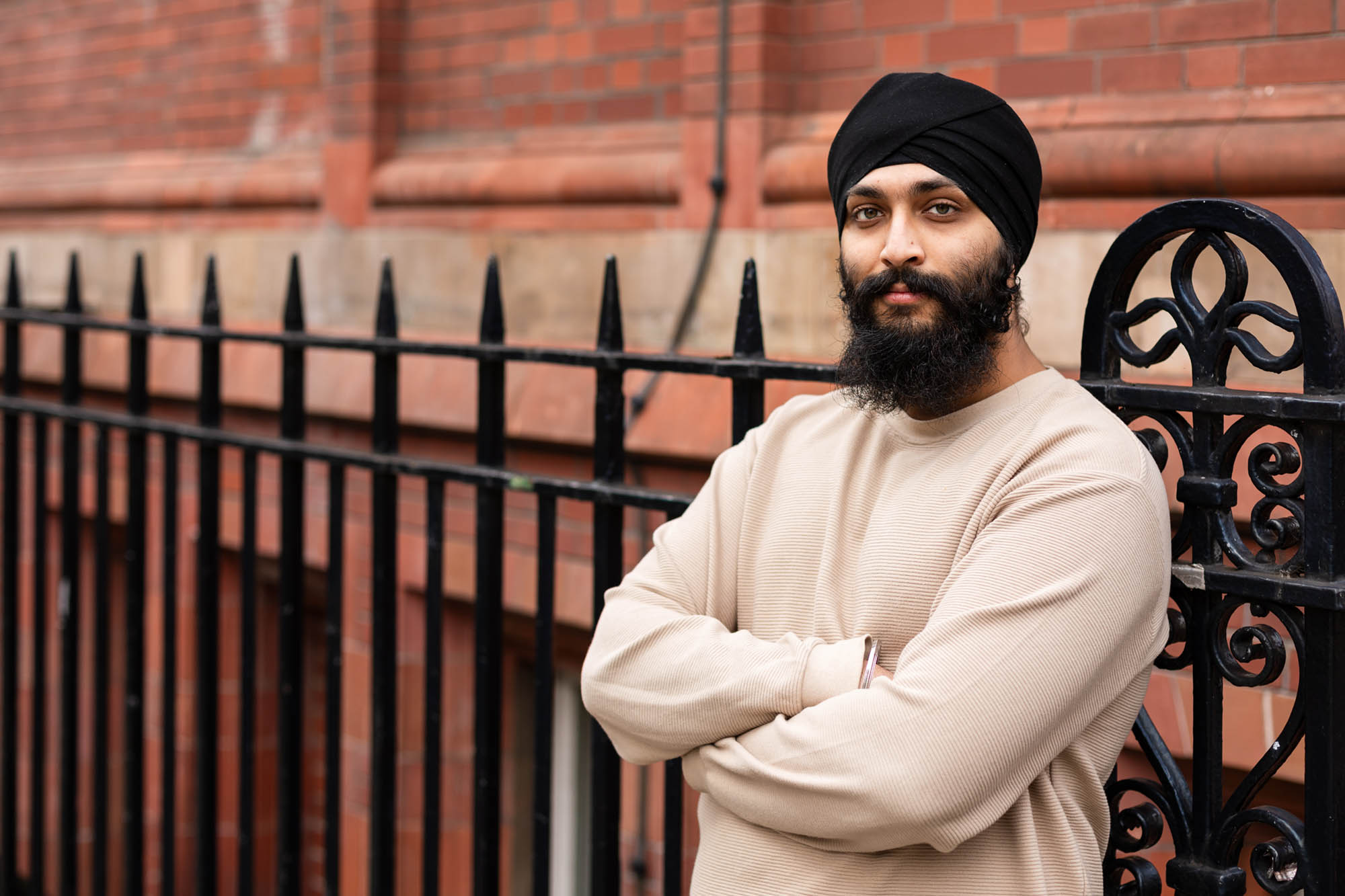
Building the dream, from the ground up
The journey from Kabul to UCL
Words by Fiona Thompson
Photography © Jayne Lloyd
It’s the middle of the day on the Bloomsbury campus of University College London (UCL). Voted University of the Year in 2024, UCL is renowned as a highly competitive, highly successful global university. Students from all over the world are bustling around, making their way between high-tech labs and the serene spaces of Bloomsbury’s garden squares.
One of those students, Jasneet Singh, is telling me about the subject of his undergraduate Civil Engineering dissertation as we walk through a historic paved courtyard towards the Department of Management Science and Innovation.
“My dissertation was about the phenomenon of liquefaction,” he explains. “This can happen during an earthquake when soil is affected by seismic shaking, which makes the ground act like a liquid. Liquefaction can cause landslides and sinkholes, and can destroy buildings.
“As a civil engineer, this subject is interesting to me because we have to be sure that we’re building on solid ground. In my dissertation, I explored a number of different methods to predict where liquefaction might happen.”
It’s hard to believe that this 21 year old who’s talking so fluently about geotechnics only started school at the age of 13, when he came to the UK from Afghanistan as a refugee.
He attributes his success to a thirst for learning and a streak of independence that helped him overcome a series of challenges.
Jasneet grew up in Kabul, Afghanistan, with his father, mother and younger brother. As members of the minority Sikh population, the family experienced discrimination and Jasneet and his brother were prevented from going to school. “My parents hired a home tutor, but it wasn’t very successful because the teacher didn’t know very much. I didn’t learn any maths, English or science. I was a blank slate,” he says.
In 2014, the family moved to Stoke-on-Trent to build a new life in the UK. “Going to school was a shock,” says Jasneet. “Everyone seemed so smart. I didn’t speak any English, I didn’t know how to communicate, and I hadn’t got a clue how to take part in the lessons. Also, I was the only non-white person in the school. Other pupils tried to be nice to me, but I was often left out.”
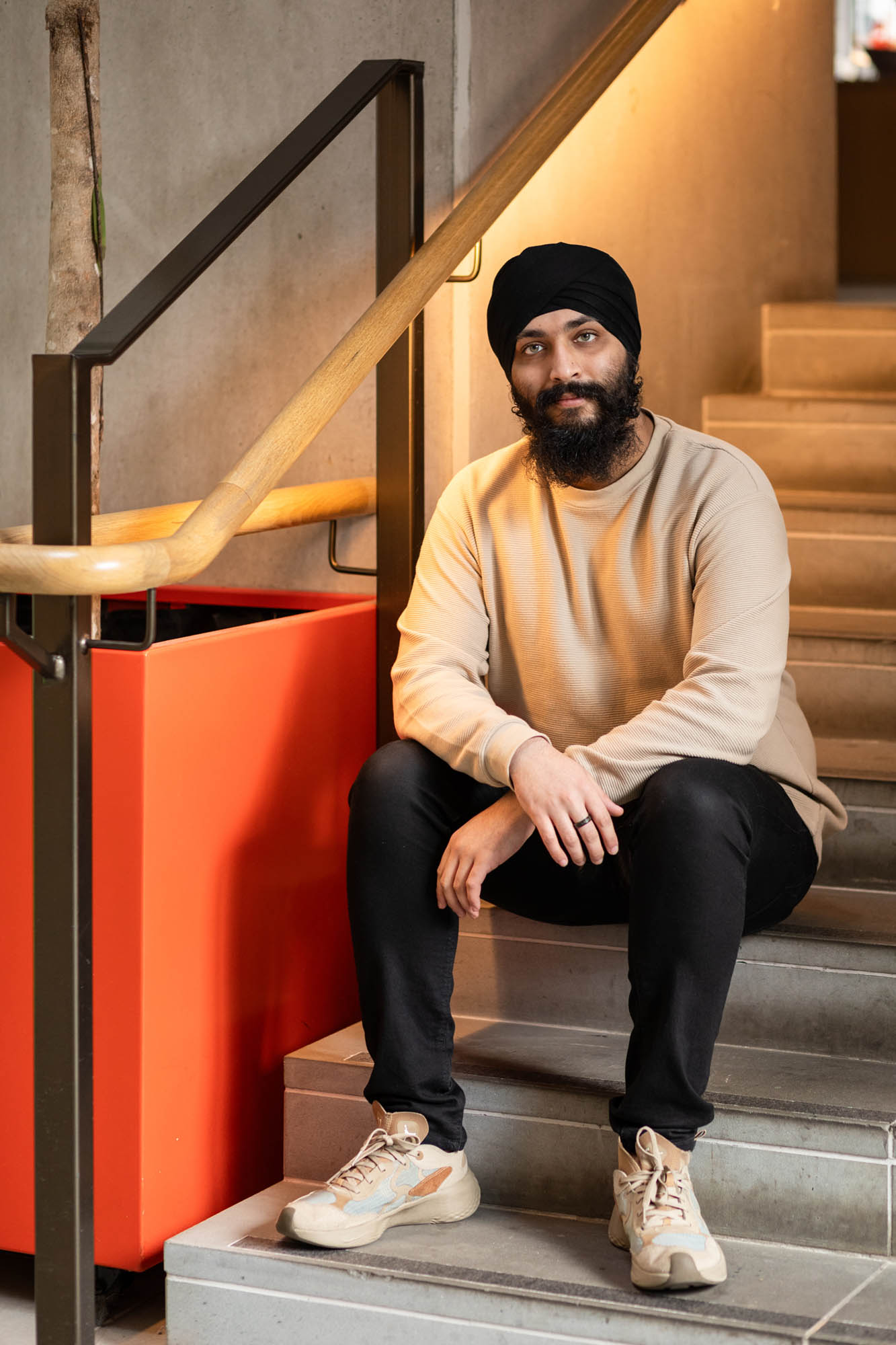
After six months, the family moved to Hounslow in West London to what Jasneet describes as the worst school in the borough. “I didn’t have a choice,” he says. “None of the other schools would accept me because I didn’t have basic maths or English skills.
“I was quite shy and timid, so it was hard to make friends at first. Back then, I didn’t think it would ever be possible to go to university because I was so far behind with my education.”
The odds were stacked against Jasneet, but he was quietly determined to make the most of every opportunity available. He threw himself into learning English, reading his way through the Harry Potter series, and took up swimming and badminton. He made friends with classmates and took part in friendly competitions that helped him with his studies. Above all, he worked hard.
It’s testament to his determination that, just a few years after arriving in the UK speaking no English, he gained the highest GCSE results in his school. He left with a clutch of GCSEs in maths, three sciences, geography, English literature and language, computer science, business studies and media studies. Plus an A in Punjabi, his mother tongue.
In 2018, Jasneet switched to The Heathland School, a highly rated comprehensive in Hounslow, to study A levels in maths, physics and economics.
“I’d done the hard bit of catching up on my education by then,” says Jasneet. “I knew I wanted to do something related to maths, maybe engineering or accounting, so I chose subjects that would keep my options open.”
During his first year of sixth form, Jasneet was chosen to be part of a programme run by The Brilliant Club. This award-winning charity supports students from less advantaged backgrounds to access the most competitive universities and succeed when they get there.
The Brilliant Club was set up in 2011 to address the severe problem of inequality in the field of higher education. “People from less advantaged backgrounds have a 2 in 100 chance of going to the most competitive universities, compared to 28 in 100 of the most advantaged pupils,” says Dr Charlotte Hallahan, Senior Policy and Communications Officer at The Brilliant Club.
“This means that disadvantaged pupils are 14 times less likely to attend university than more advantaged peers. The real problem is that these pupils miss out on the life-changing experiences they could have accessed through higher education.”
According to The Social Mobility Foundation, students who go to the most competitive universities earn £10,000 more per year than those who don’t, and have higher rates of life satisfaction as well.
“It’s fundamentally unfair that a person should miss out on these opportunities and experiences just because of their background,” adds Charlotte.
The charity’s flagship programme is The Scholars Programme, where PhD students share their knowledge and passion for learning with pupils aged 8-18. “The magic of the programme is that it encourages young people to see education as something exciting and connected to their world,” says Charlotte. “They start to see education as something that can open doors for them.”
“It’s super inspiring to see that a programme that’s geared towards university access can have such an effect on GCSE results. It demonstrates the impact of intervening early.”
The charity also offers tutoring to Year 10 students, supports students as they make the transition to higher education, and helps parents and carers to drive change in their communities.
“We work primarily with students who are on free school meals, who live in areas of high deprivation or who come from families with no parental history of higher education,” says Charlotte.
Students who have benefited from The Brilliant Club include pupils at Prendergast Ladywell School, one of the Leathersellers’ Federation of Schools. “The students who have taken part in The Brilliant Club are in the top rank of the school in every subject,” says Leonidas Kastis, who leads the programme at the school.
“We focus on pupils whose parents don’t have a degree. The Brilliant Club helps them understand what university learning is like, so studying for a degree is more attainable and tangible. It broadens their perspectives and opens up new possibilities for them.
“They also gain confidence in public speaking and expressing their views. When they write their cv and personal statement, they have so much to talk about.”
In 2021-2022, the charity worked with over 22,000 young people in over 1,000 schools. Independent UCAS evaluation found that students who complete The Scholars Programme are statistically significantly more likely to apply to a competitive university than students from similar backgrounds. As a result, they also progress to a competitive university at a higher rate.
“Recently, we also saw an unexpected finding from HEAT, the Higher Education Access Tracker, which holds data on higher education,” says Charlotte. “They found that students who did The Scholars Programme in Year 8, 9 or 10 were more likely to achieve a 9-5 in maths and English than students who scored similarly at Key Stage 2 within their schools.
“It’s super inspiring to see that a programme that’s geared towards university access can have such an effect on GCSE results. It demonstrates the impact of intervening early.”
Jasneet took part in a course designed by a PhD student, who received pedagogical training from The Brilliant Club. At the end of the course, he researched and wrote a university-style essay on a given topic. The aim was to help him understand the requirements of university-level study, so that he’d be better equipped both to apply to university and to succeed when he got there.
“My essay was on the effect of solitary confinement on prisoners,” says Jasneet. “I had five or six sessions with a PhD tutor who specialised in this field. I learned how to evaluate different perspectives, write a report and use references. It was a very different approach to what we would usually have done in school.”
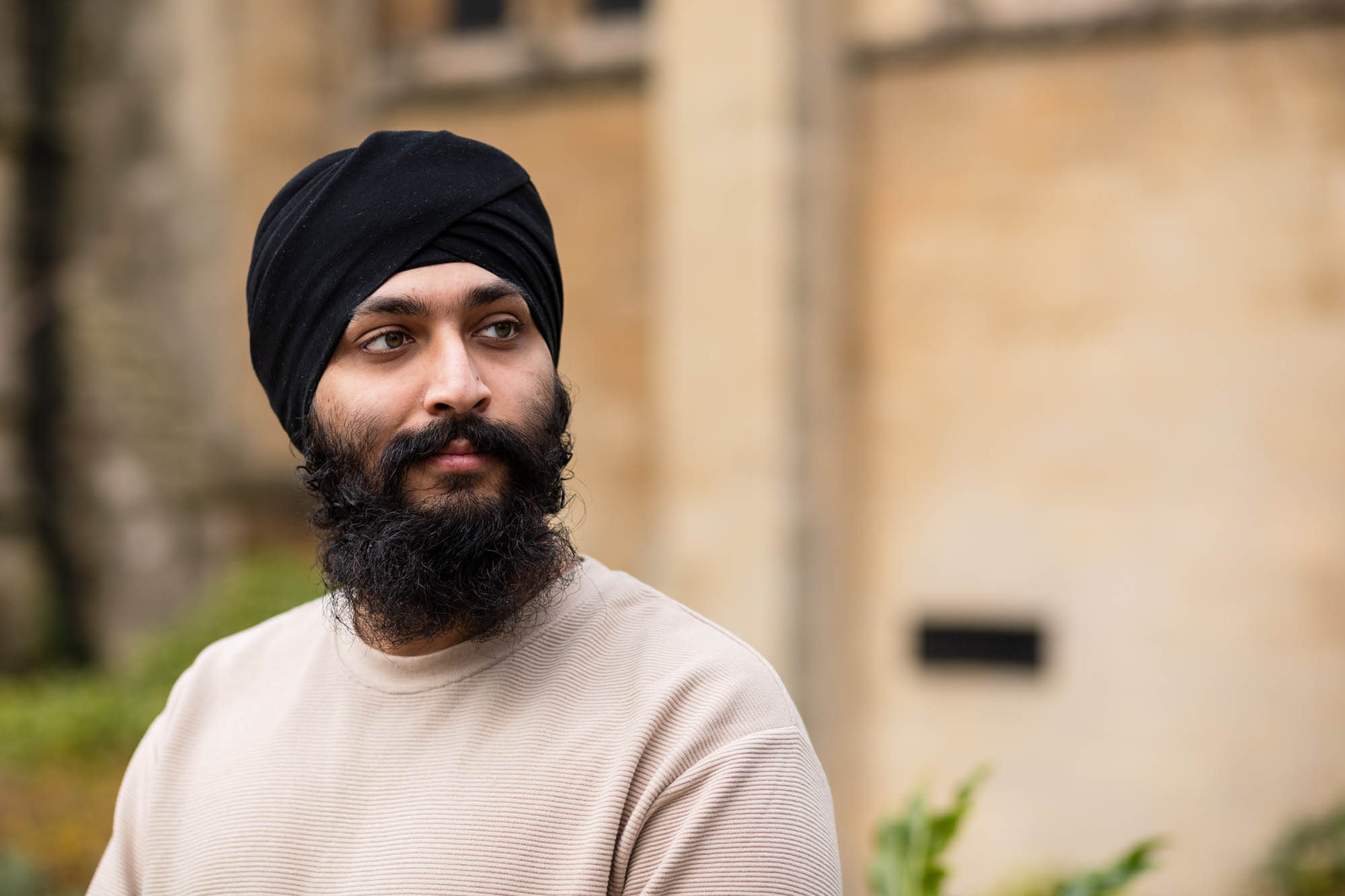
The experience of working with The Brilliant Club tutor confirmed Jasneet’s ambition to go to university. “It was fantastic,” he says. “I knew I wanted to go to uni, but working with the tutor made me 110% sure. I liked the university style of teaching. It felt as though I was learning things that would be relevant in real life. It made me want to study and learn more.”
Jasneet visited the University of Reading and the University of Oxford, where he was fired up by the challenge of learning. “Talking to some students, they said how it could be stressful and scary, but that you’re also very independent. Instead of putting me off, this made me more excited to go to university. I like being challenged. At uni, you’re always going to be wrong at some point, but the main thing is to keep going, not to be scared of being wrong. That’s how you learn.”
Inspired by Thomas Telford, the Scottish civil engineer, Jasneet decided to study civil engineering. “I read Julian Glover’s biography of Telford, ‘Man of Iron’, and was amazed by what he achieved. He built over 1,000 miles of road and 1,000 bridges in his lifetime. It appealed to me that civil engineers can leave such a huge physical legacy in the world through their work.”
Jasneet attended an open day for the Civil Engineering degree at UCL, which motivated him to apply for the course. “The open day at UCL was fantastic. They showcased opportunities that I didn’t see at other universities, including a week-long construction project.”
He subsequently gained a place on the UCL course. And, having spent the first year studying online due to Covid restrictions, he was delighted to experience the week-long project when live tuition started up again.
“Our project was to build a 10 metre long small-scale model of the Brewery Wharf bridge in Leeds,” he says. “We woke up at 6am every day and worked all day digging, pouring concrete and putting in steel bars. It was completely exhausting, but so good because you could see everything being physically built. It felt like such an achievement to complete the bridge.”
Having completed his undergraduate degree, Jasneet is now studying for a Masters in Civil Engineering at UCL.
Looking back, Jasneet assesses the impact of taking part in The Brilliant Club. “Doing The Scholars Programme really helped boost my confidence. I was talking to experts who weren’t judging me, in a nurturing environment where it’s OK to make mistakes.
“Before, I was very shy and rarely spoke up. I often didn’t go for opportunities because I was worried about whether I’d do a good enough job. But now I have a lot more confidence. It was great for my personal development.”
He is especially appreciative of the way that The Brilliant Club helped put him on an equal footing with young people from more privileged backgrounds. “When you look at the kind of people who go to Oxbridge and UCL, many of them come from private schools. They have extra tutoring as well as academic and industry connections thanks to their parents. All of this gives them an additional advantage that the general population doesn’t have.
“The Brilliant Club helps level the playing field, giving someone like me the chance of going to a top university like UCL.”
Jasneet is now an Ambassador for The Brilliant Club, which has given him more opportunities to make his mark. “Last year I was asked to give a speech to students in Years 5 and 6 who’d graduated from The Scholars Programme,” he says. “I’d never done any public speaking before, so it was quite alarming to be talking to around 50 people. I told them how well they’d done and what an impact the programme would have on their life.”
As an Ambassador, Jasneet has also written an article for The Scholar, The Brilliant Club’s magazine, and sits on the charity’s youth advisory panel. “We meet four times a year and give feedback on new ideas and initiatives for The Brilliant Club. Recently, we’ve been discussing its Join the Dots programme, which supports students from GCSE results day through their first six months at uni.”
In the future, he’d like to work in the geotechnics field or become a project manager for a large construction company such as Arup or Kier. “They’re hard to get into,” he comments. “But let’s see how it goes.”
Given his achievements so far, this sounds like an entirely achievable ambition.
READ MORE
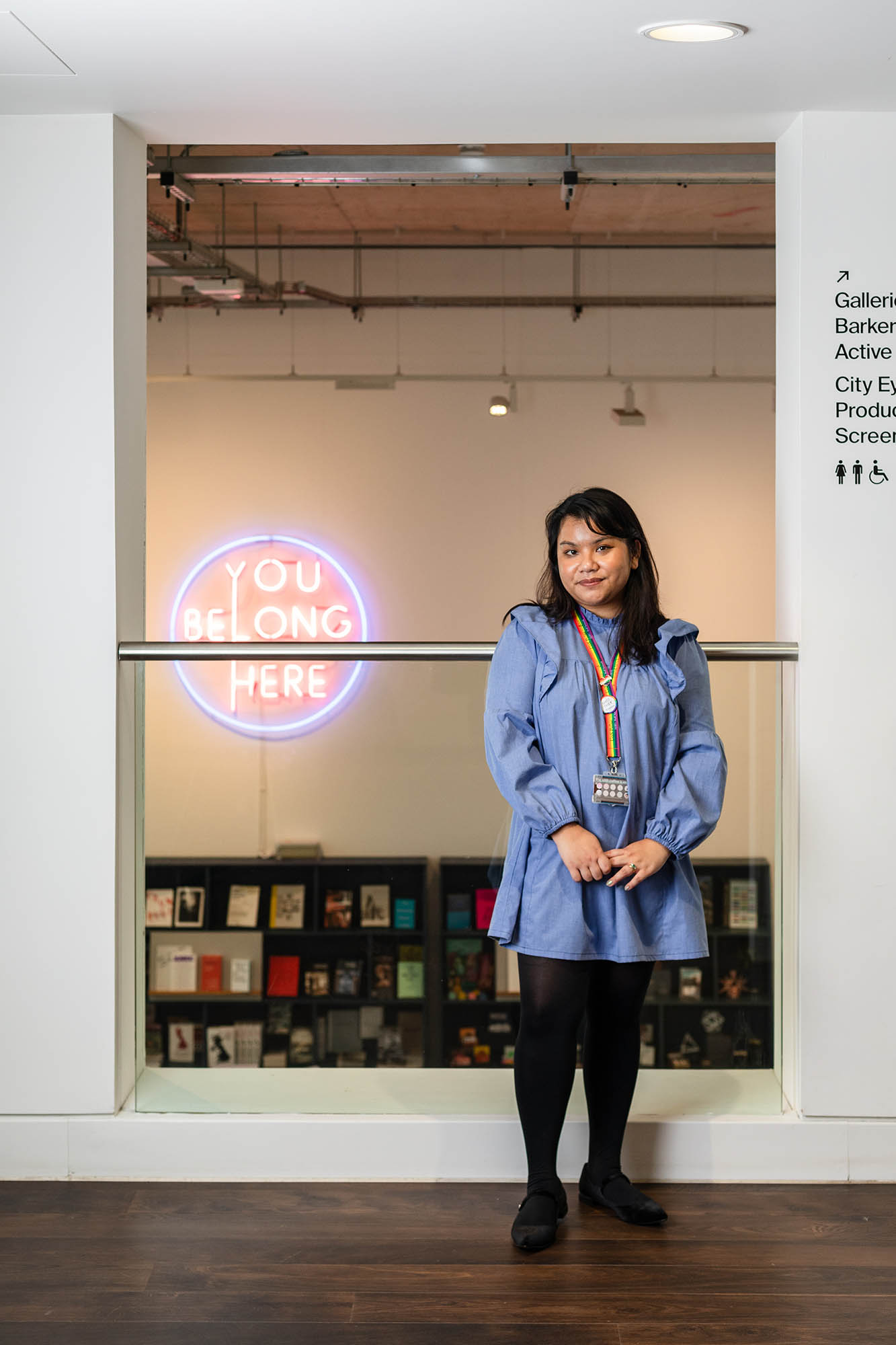
Breaking Through the Class Ceiling
What can a photographic exhibition at Southampton University teach us about social mobility? Students, staff and alumni share their experiences and contribute to a complex, intersectional picture of challenges.
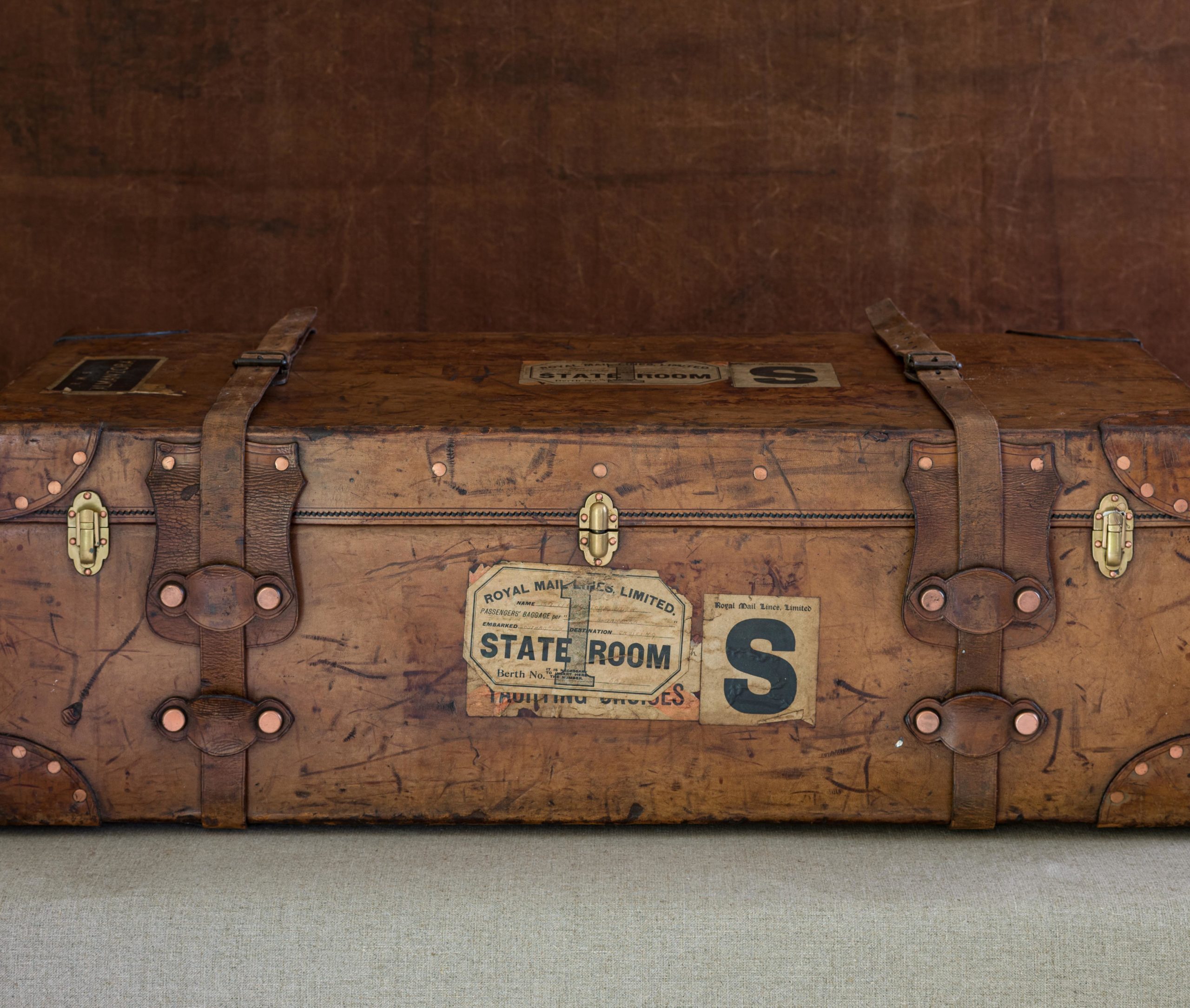
The Rich History of the Leather Trunk
Rory FH Smith charts the evolution of luggage and the role of leather - a story synonymous with changes in transportation.
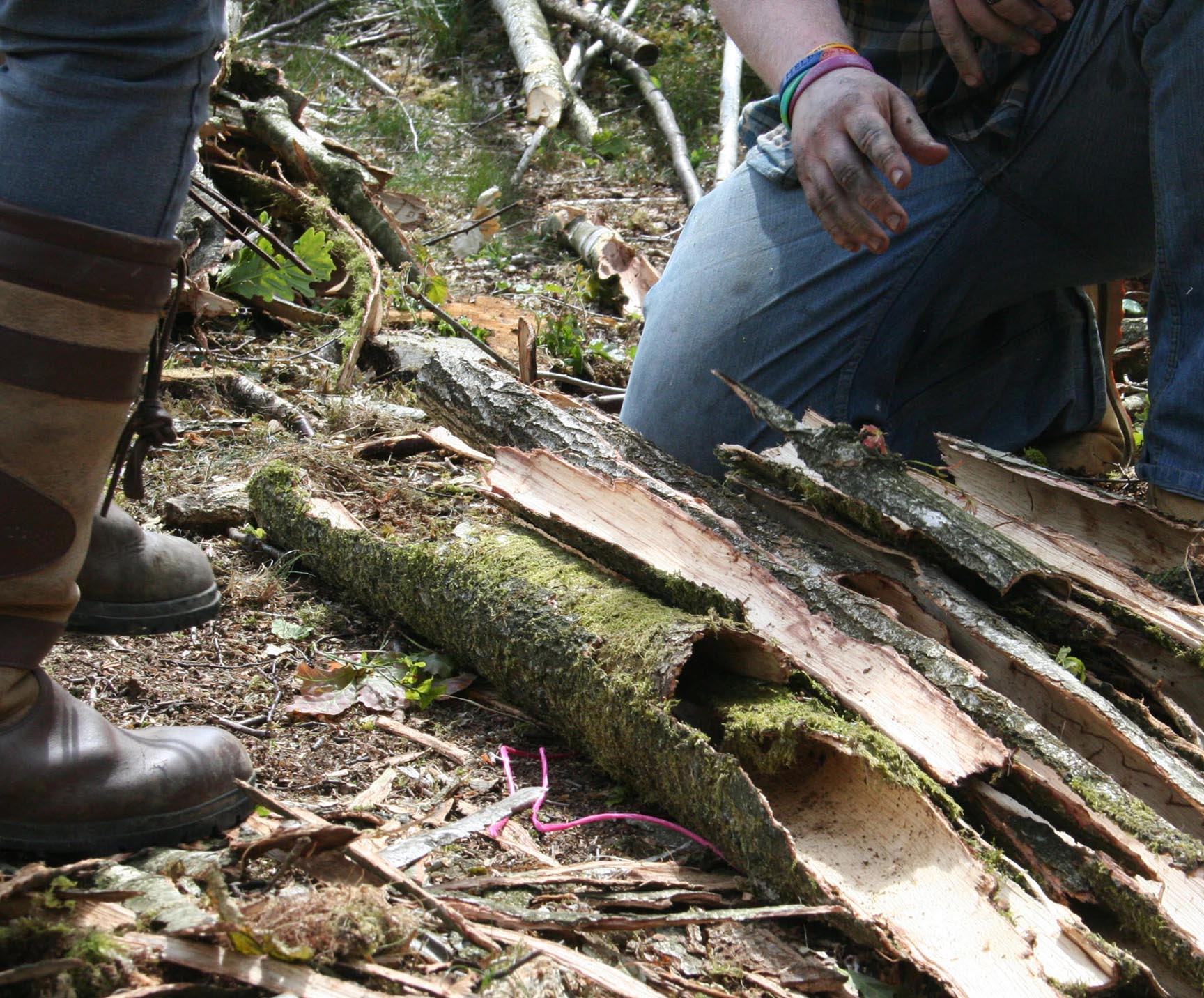
Where the Oaks Grow
A timeless symbol of Britishness, the great English oak and its devoted army of coppicers are fundamental in producing some of the world’s finest tanned leather.